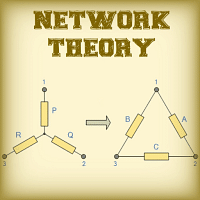Electrical Engineering (EE) Exam > Electrical Engineering (EE) Questions > Series capacitors on transmission lines are o...
Start Learning for Free
Series capacitors on transmission lines are of little used when
- a)the load VAR requirement is small
- b)the load VAR requirement is large
- c)the load VAR requirement is fluctuating
- d)Series capacitors are never used on transmission lines
Correct answer is option 'A'. Can you explain this answer?
| FREE This question is part of | Download PDF Attempt this Test |
Verified Answer
Series capacitors on transmission lines are of little used whena)the l...
Series compensation is the method of improving the system voltage by connecting a capacitor in series with the transmission line. In other words, in series compensation, reactive power is inserted in series with the transmission line for improving the impedance of the system. It improves the power transfer capability of the line. It is mostly used in extra and ultra high voltage line.
View all questions of this test
Most Upvoted Answer
Series capacitors on transmission lines are of little used whena)the l...
Introduction:
Series capacitors are used on transmission lines for a variety of reasons, including increasing power transfer capability, reducing voltage drop, and improving system stability. However, their use depends on various factors, including the load VAR requirement.
Explanation:
The correct answer is option A, which states that series capacitors on transmission lines are of little use when the load VAR requirement is small. This is because series capacitors are primarily used to improve power transfer capability, which is necessary when the load VAR requirement is large. When the load VAR requirement is small, the power transfer capability of the transmission line is already sufficient, and the addition of series capacitors may not provide significant benefits.
Below are some points to support the answer:
- Series capacitors are used on transmission lines to increase power transfer capability by reducing voltage drop and improving system stability. They do this by compensating for the inductive reactance of the line, which can limit the amount of power that can be transferred.
- The amount of compensation provided by series capacitors depends on the load VAR requirement. When the load VAR requirement is large, the addition of series capacitors can significantly improve power transfer capability. However, when the load VAR requirement is small, the power transfer capability is already sufficient, and the addition of series capacitors may not provide significant benefits.
- The load VAR requirement can vary depending on the type of load connected to the transmission line. For example, a motor load may have a large VAR requirement, while a resistive load may have a small VAR requirement. Therefore, the decision to install series capacitors on a transmission line should be based on an analysis of the load characteristics.
- It is also worth noting that the use of series capacitors can have drawbacks, such as increased risk of overvoltage and resonance. Therefore, their use should be carefully considered to ensure that the benefits outweigh the risks.
Conclusion:
In conclusion, series capacitors on transmission lines are of little use when the load VAR requirement is small. Their use should be based on an analysis of the load characteristics and the potential benefits and drawbacks of their installation.
Series capacitors are used on transmission lines for a variety of reasons, including increasing power transfer capability, reducing voltage drop, and improving system stability. However, their use depends on various factors, including the load VAR requirement.
Explanation:
The correct answer is option A, which states that series capacitors on transmission lines are of little use when the load VAR requirement is small. This is because series capacitors are primarily used to improve power transfer capability, which is necessary when the load VAR requirement is large. When the load VAR requirement is small, the power transfer capability of the transmission line is already sufficient, and the addition of series capacitors may not provide significant benefits.
Below are some points to support the answer:
- Series capacitors are used on transmission lines to increase power transfer capability by reducing voltage drop and improving system stability. They do this by compensating for the inductive reactance of the line, which can limit the amount of power that can be transferred.
- The amount of compensation provided by series capacitors depends on the load VAR requirement. When the load VAR requirement is large, the addition of series capacitors can significantly improve power transfer capability. However, when the load VAR requirement is small, the power transfer capability is already sufficient, and the addition of series capacitors may not provide significant benefits.
- The load VAR requirement can vary depending on the type of load connected to the transmission line. For example, a motor load may have a large VAR requirement, while a resistive load may have a small VAR requirement. Therefore, the decision to install series capacitors on a transmission line should be based on an analysis of the load characteristics.
- It is also worth noting that the use of series capacitors can have drawbacks, such as increased risk of overvoltage and resonance. Therefore, their use should be carefully considered to ensure that the benefits outweigh the risks.
Conclusion:
In conclusion, series capacitors on transmission lines are of little use when the load VAR requirement is small. Their use should be based on an analysis of the load characteristics and the potential benefits and drawbacks of their installation.
Free Test
FREE
| Start Free Test |
Community Answer
Series capacitors on transmission lines are of little used whena)the l...
VAR load is small meant that , reactive power is less or use of inductive loads are small. When reactive power is increases then power factor decreases. To maintain power factor as 1 , We use series capacitors in transmission lines. When the series capacitors are of little used in transmission line, VAR requirement is small.
Attention Electrical Engineering (EE) Students!
To make sure you are not studying endlessly, EduRev has designed Electrical Engineering (EE) study material, with Structured Courses, Videos, & Test Series. Plus get personalized analysis, doubt solving and improvement plans to achieve a great score in Electrical Engineering (EE).

|
Explore Courses for Electrical Engineering (EE) exam
|

|
Similar Electrical Engineering (EE) Doubts
Series capacitors on transmission lines are of little used whena)the load VAR requirement is smallb)the load VAR requirement is largec)the load VAR requirement is fluctuatingd)Series capacitors are never used on transmission linesCorrect answer is option 'A'. Can you explain this answer?
Question Description
Series capacitors on transmission lines are of little used whena)the load VAR requirement is smallb)the load VAR requirement is largec)the load VAR requirement is fluctuatingd)Series capacitors are never used on transmission linesCorrect answer is option 'A'. Can you explain this answer? for Electrical Engineering (EE) 2024 is part of Electrical Engineering (EE) preparation. The Question and answers have been prepared according to the Electrical Engineering (EE) exam syllabus. Information about Series capacitors on transmission lines are of little used whena)the load VAR requirement is smallb)the load VAR requirement is largec)the load VAR requirement is fluctuatingd)Series capacitors are never used on transmission linesCorrect answer is option 'A'. Can you explain this answer? covers all topics & solutions for Electrical Engineering (EE) 2024 Exam. Find important definitions, questions, meanings, examples, exercises and tests below for Series capacitors on transmission lines are of little used whena)the load VAR requirement is smallb)the load VAR requirement is largec)the load VAR requirement is fluctuatingd)Series capacitors are never used on transmission linesCorrect answer is option 'A'. Can you explain this answer?.
Series capacitors on transmission lines are of little used whena)the load VAR requirement is smallb)the load VAR requirement is largec)the load VAR requirement is fluctuatingd)Series capacitors are never used on transmission linesCorrect answer is option 'A'. Can you explain this answer? for Electrical Engineering (EE) 2024 is part of Electrical Engineering (EE) preparation. The Question and answers have been prepared according to the Electrical Engineering (EE) exam syllabus. Information about Series capacitors on transmission lines are of little used whena)the load VAR requirement is smallb)the load VAR requirement is largec)the load VAR requirement is fluctuatingd)Series capacitors are never used on transmission linesCorrect answer is option 'A'. Can you explain this answer? covers all topics & solutions for Electrical Engineering (EE) 2024 Exam. Find important definitions, questions, meanings, examples, exercises and tests below for Series capacitors on transmission lines are of little used whena)the load VAR requirement is smallb)the load VAR requirement is largec)the load VAR requirement is fluctuatingd)Series capacitors are never used on transmission linesCorrect answer is option 'A'. Can you explain this answer?.
Solutions for Series capacitors on transmission lines are of little used whena)the load VAR requirement is smallb)the load VAR requirement is largec)the load VAR requirement is fluctuatingd)Series capacitors are never used on transmission linesCorrect answer is option 'A'. Can you explain this answer? in English & in Hindi are available as part of our courses for Electrical Engineering (EE).
Download more important topics, notes, lectures and mock test series for Electrical Engineering (EE) Exam by signing up for free.
Here you can find the meaning of Series capacitors on transmission lines are of little used whena)the load VAR requirement is smallb)the load VAR requirement is largec)the load VAR requirement is fluctuatingd)Series capacitors are never used on transmission linesCorrect answer is option 'A'. Can you explain this answer? defined & explained in the simplest way possible. Besides giving the explanation of
Series capacitors on transmission lines are of little used whena)the load VAR requirement is smallb)the load VAR requirement is largec)the load VAR requirement is fluctuatingd)Series capacitors are never used on transmission linesCorrect answer is option 'A'. Can you explain this answer?, a detailed solution for Series capacitors on transmission lines are of little used whena)the load VAR requirement is smallb)the load VAR requirement is largec)the load VAR requirement is fluctuatingd)Series capacitors are never used on transmission linesCorrect answer is option 'A'. Can you explain this answer? has been provided alongside types of Series capacitors on transmission lines are of little used whena)the load VAR requirement is smallb)the load VAR requirement is largec)the load VAR requirement is fluctuatingd)Series capacitors are never used on transmission linesCorrect answer is option 'A'. Can you explain this answer? theory, EduRev gives you an
ample number of questions to practice Series capacitors on transmission lines are of little used whena)the load VAR requirement is smallb)the load VAR requirement is largec)the load VAR requirement is fluctuatingd)Series capacitors are never used on transmission linesCorrect answer is option 'A'. Can you explain this answer? tests, examples and also practice Electrical Engineering (EE) tests.

|
Explore Courses for Electrical Engineering (EE) exam
|

|
Suggested Free Tests
Signup for Free!
Signup to see your scores go up within 7 days! Learn & Practice with 1000+ FREE Notes, Videos & Tests.
























